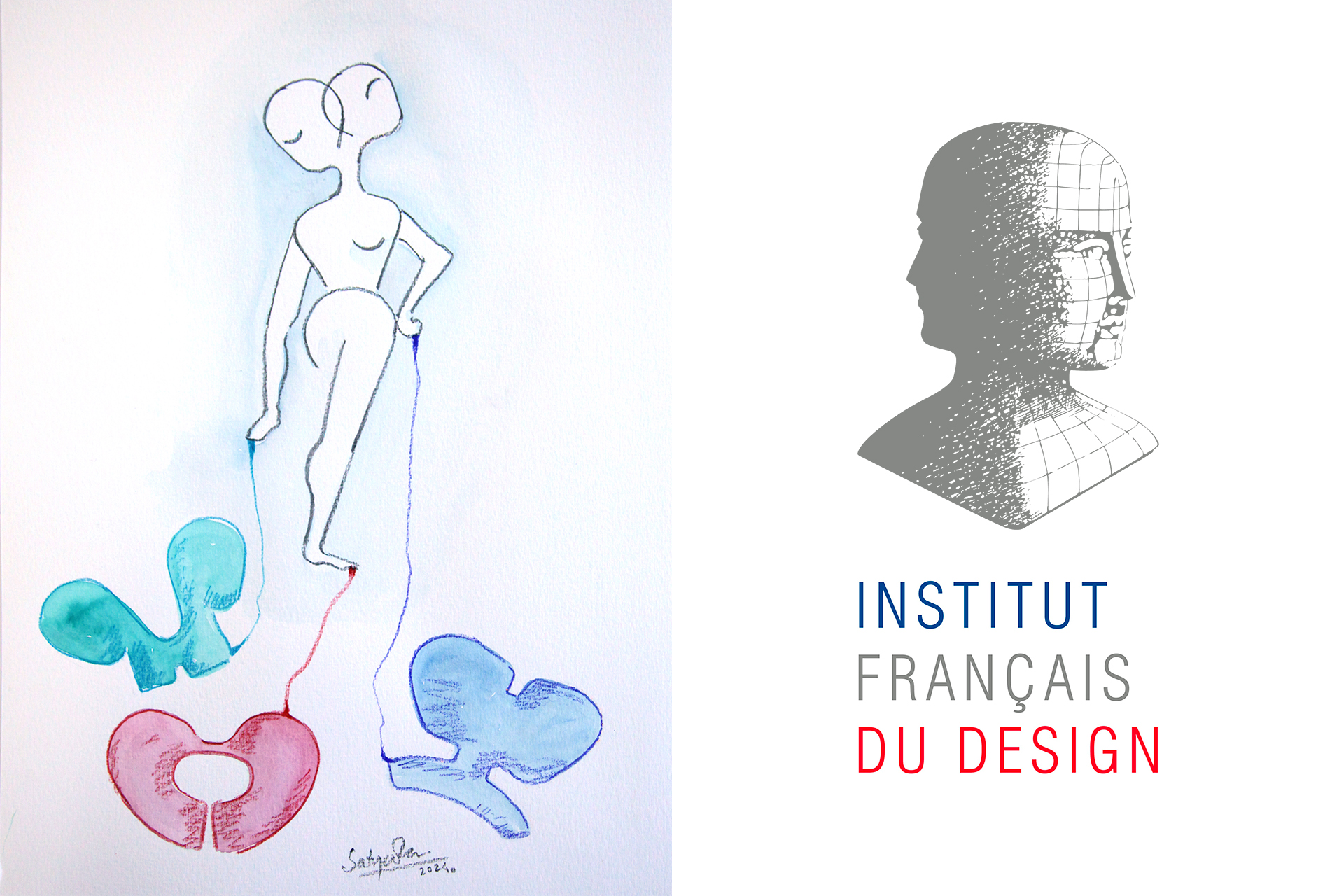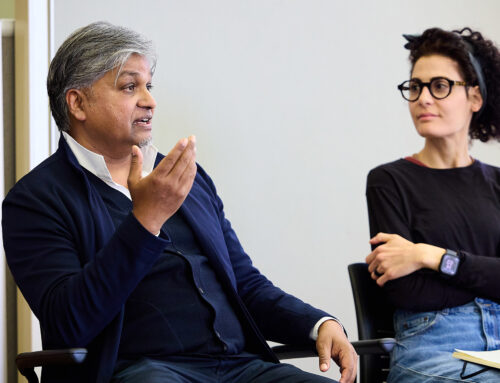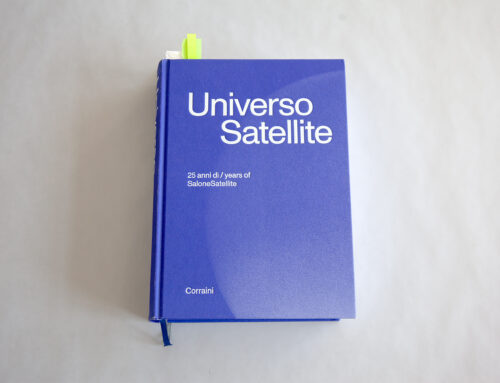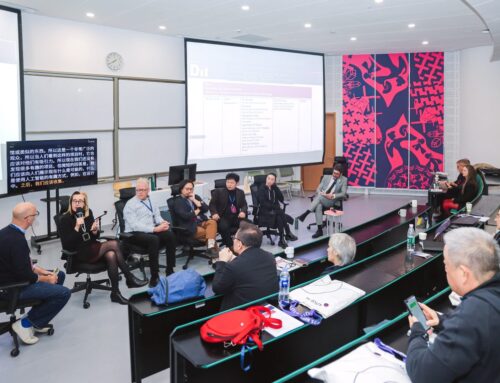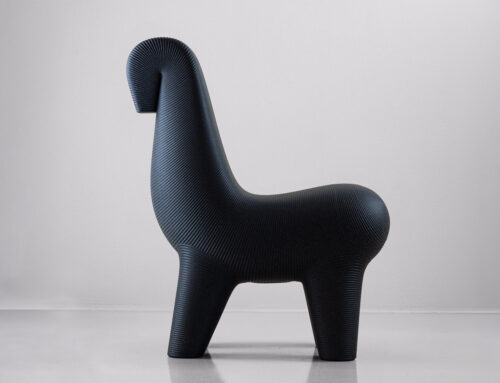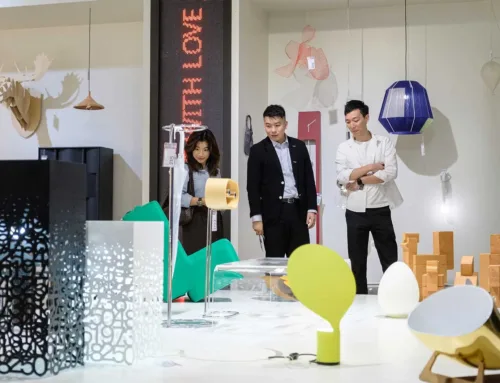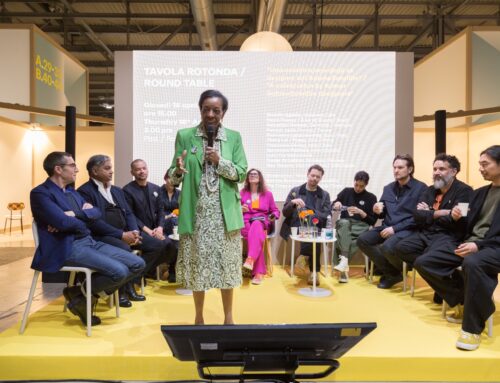On the occasion of the 70th anniversary of the Janus Award, Mme. Anne Marie Sargueil, Président Institute Francaise du Design, invited designers to reveal their own sensitive interpretation of the mythological figure Janus in the light of the great challenges of our century.
Satyendra Pakhale was inspired by these quotes by French historical figures which evoke a deep reflection on themes such as looking at the past and at the future and understanding the essential as a philosophical and political act:
“If I had to remake Europe, I would not start with the economy, I would start with culture.” – Jean Monnet
“A sketch is not the beginning of a masterpiece to come, it is not the end of it – it is the essential.” – Sacha Guitry
This reflection led to ‘Janus – the future in the past’.
‘Janus – the future in the past’ by Satyendra Pakhalé
“Every moment is a new beginning; Janus is an apt representation of the ‘act of creation’ referring simply to the ancient and innate impulse behind human making. To create a future one ought to understand past. Design is not the result of society but in fact the very opposite. Design is the shaper of society, the foundation that allows people to know more about how to live in the world. Such act of creation comes with responsibility of genuine ‘secular humanistic’ intention. Such cultural act is about ‘social justice’ as much as utility and beauty. With the creator’s secular-humanist insight and inquiry into the human condition, design is a primary aspect of cultivating social modernity to rebuild society” Satyendra Pakhalé
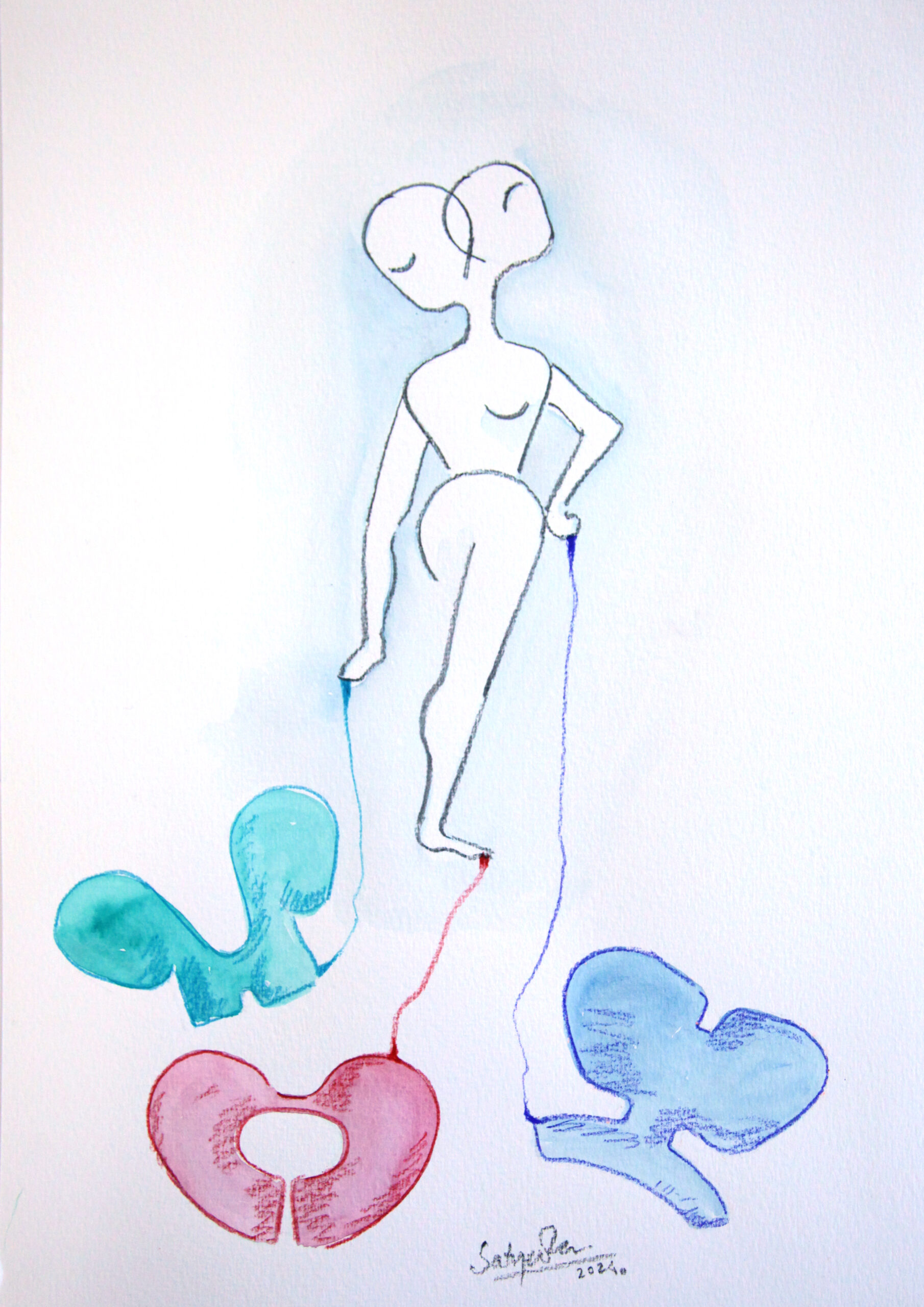
Every day, every moment is a new beginning, design is indeed a new beginning.
It envisions further, near future or far future. Such act of creation, being, making, conceiving is truly is an act of becoming, a becoming of that desired future.
Janus symbolically represents that desired future, a new beginning, a gateway,
a passage, an entrance, and also an ending. Therefore potential beginning of something new.
Janus is an apt representation of the ‘act of creation’ referring simply to the ancient and innate impulse behind human making. It engages with the very roots of human need to create, to design, to make to build and bring something into reality. The process of making, though which human beings modify the natural world to make it accessible to the senses and to inhabit it, is the strongest manifestation of this encounter.
To create the designer ought to question everything. To create a future one ought to understand past. Without knowing history one cannot create history. Knowing and discovering historic authenticity and by weaving it into a continuity of human making is design. Design is indeed about future that will also become history at one point.
The human being is a social animal and at the root of human life is hope. Designers have a commitment to empower social messages. ‘Social modernity’ and with-it social justice, is as important in a society as economic and political justice. Design is not the result of society but in fact the very opposite. Design is the shaper of society, the foundation that allows people to know more about how to live in the world. It is a source of knowledge in itself, yet it is hidden. People can discover it by experiencing and allowing the design piece to disclose all the potentialities of the atmosphere it creates, showing the many sensorial, intellectual, cultural, social and political – modernist aptitudes a human being has. Design is a way of knowing more about ourselves as humans and social beings. It is the foundation of a way of life – if created with a deep understanding of its meaning.
Every creation is a profound zeal to make a mark on one’s time, to be able to express freedom of creation and simply to be alive. Such act of creation comes with responsibility of genuine ‘secular humanistic’ intention. Such cultural act is about social justice as much as utility and beauty. With its secular-humanist insight and inquiry into the human condition, design is a primary aspect of cultivating social modernity to rebuild society; and social modernity has to be further cultivated in order to reconstruct society as the basis of secular humanity. Design on the foundation of secular humanity has a potential to become universal poetry.
I am deeply honored and humbled to begin my international design journey by winning Janus award in 1991 and now almost 32 years later I am happy to contribute to the “The JANUS: reinvention of a myth by great French designers” – A poetic journey on one of the oldest symbols of our common history to think about the future.
Satyendra Pakhalé
